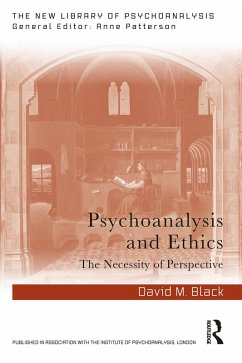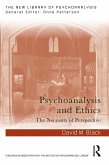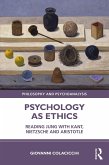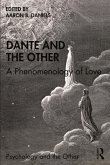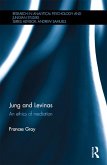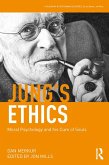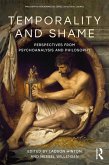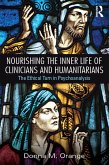In recent years, partly because of the climate crisis, the need for an "ethical turn" in our thinking has been recognised with increasing urgency. Using different historical lenses, and with special reference to the thought of the philosopher Emmanuel Levinas and pioneering American psychoanalysts such as Hans Loewald and Stephen Mitchell, the author discusses the perspectives needed in addition to those of science if the facts of "psychic reality" are to be more adequately recognised. In particular, this book emphasises the importance of a coherent account of the role of ethics in shaping the development both of the individual and of society.
Psychoanalysis and Ethics is essential reading for those concerned for the importance of ethics in psychoanalytic practice and theory, and more widely for those seeking to understand the place of ethics and religion in psychological development.
Dieser Download kann aus rechtlichen Gründen nur mit Rechnungsadresse in A, B, BG, CY, CZ, D, DK, EW, E, FIN, F, GR, HR, H, IRL, I, LT, L, LR, M, NL, PL, P, R, S, SLO, SK ausgeliefert werden.
Jonathan Lear, Committee on Social Thought, the University of Chicago
'Few books so generously provide a rich and nuanced conceptual scaffolding to help us to push open new doors in our thinking. This is one of those rare books. Masterful in his integration of philosophy, theology, psychoanalysis and literature, David M. Black has instantiated the "necessity of perspective" through his interdisciplinary approach to ethics. In the morally challenging times we live in, this book is essential and rewarding reading, not only for psychoanalytic clinicians and academics, but also for anyone interested in ethics - it is a book that I am sure I will return to many times.'
Alessandra Lemma, fellow, British Psychoanalytic Society and visiting professor, Psychoanalysis Unit, University College London; author of First Principles: Applied Ethics for Psychoanalytic Practice
'David M. Black has made an extraordinary individual contribution to psychoanalytic writing over many years. He approaches psychoanalysis from a unique combination of experiences and trainings in which he has been depply immersed: religion, philosophy, ethics, psychoanalysis, literature - most recently the mammoth project of translating and writing commentaries on Dante. His voice is very much his own, and he approaches any subject with this very broad set of references, which infuses his writing with a particular quality of contemplation and vitality. I always look forward hungrily to receiving his latest psychoanalytic contribution.'
Francis Grier, editor-in-chief, International Journal of Psychoanalysis; training analyst and supervisor of the British Society of Psychoanalysis

